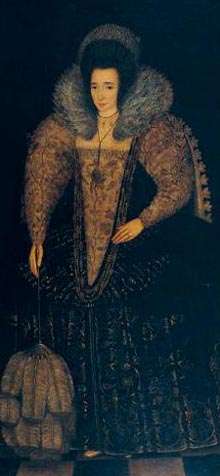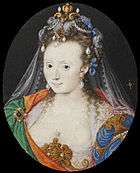English rose (epithet)



| Look up English rose in Wiktionary, the free dictionary. |
English rose is a description, associated with English culture, that may be applied to a naturally attractive woman or girl of traditionally fair complexion who is from or is associated with England.
The description has a cultural reference to the national flower of England, the rose,[1] and to its long tradition within English symbolism.
Use in fiction
Merrie England
The term "English rose" is found in Merrie England (1902), a comic opera written by Basil Hood. He describes a garden where 'women are the flowers' and in which 'the sweetest blossom' or 'fairest queen' is 'the perfect English rose'.[2]
The words are performed by a tenor in the role of Sir Walter Raleigh (1554–1618) in the presence of a May Queen but regarding his secret love (purely within the opera) a member of the household of Elizabeth I.
See also: 16th-century portrait paintings of women (category) and 1900–09 in fashion.
'Last of the English Roses' is a song by singer/songwriter Pete Doherty from his album Grace/Wastelands.
At the Funeral of Diana, Princess of Wales in 1997, Elton John performed a version of his 1974 hit Candle in the Wind which began with the adapted lyrics, Goodbye England's rose....
See also
| Look up English rose in Wiktionary, the free dictionary. |
- English landscape garden
- English people
- English Rose (branding applied to the roses of David C.H. Austin)
- Historical immigration to Great Britain (Various European ethnicities, largely Germanic)
- List of people known as the Beautiful
- List of people known as the Fair
- May Day
- May Queen
- Outline of England
- Peaches and cream (Wiktionary definition)
- Shall I compare thee to a summer's day?
References
- ↑ "England's National Symbols". englandforever.org/.
- ↑ Dent, edited by Susie (2012). Brewer's dictionary of phrase & fable (19th ed.). Edinburgh: Chambers. p. 445. ISBN 9780550102454.